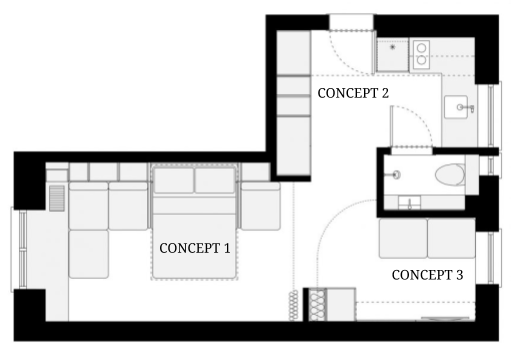Many think it’s impossible to improve your memory. But scientific research shows that many techniques do have an impact on how well we remember things. Unfortunately, lots of people use the wrong methods. For example, highlighting has virtually zero effect on information retention.
“It seems like if I have highlighted something (…) then I should remember them because I told my brain that they’re important, but the brain doesn’t take orders that way.”
Benedict Carey, author of How We Learn.
Instead, you need to strengthen the neural pathways associated with a specific memory by retrieving it, using, and connecting it with other memories. At a general level, your degree of attention—how well you can maintain your mental focus—and intention—your conscious will to maintain your mental focus—are the most important factors when it comes to memory.
While these may seem vague, the good news is: there are practical methods you can apply to improve how well you retain and retrieve information.
How to improve your memory
Lots of techniques are popular because they are relatively easy to implement. Re-reading the same passage, highlighting, summarisation are all fairly simple. They have also been found to be among the least effective learning strategies. What you will find in the list below is that all except for one of these techniques require some sort of cognitive effort.

- Visualisation. Mentally visualising information can help your remember things better. One of the most effective methods is called the Method of Loci or the Memory Palace—I personally like to call mine the Mind Mansion. This old technique has been used by ancient Greeks and Romans, and is still used to this day. It’s particularly popular in the World Memory Championship. A study found that when volunteers were trained to use the Method of Loci for six weeks, the changes in brain connectivity were similar to the ones distinguishing memory champions from regular people. To use the Method of Loci, visualise a house—or a castle or a chalet, whatever dream home floats your boat. Create the layout of the house in your head. Then, place the items you want to remember in very specific spots, for example inside the drawer of your bedside table. Every time you need an item, you can just imagine walking to where you left it to pick it up.
- Chunking. Did you notice how phone numbers are often broken up? For example, a typical US phone number will look like (123)-456-7890 instead of 1234567890. It’s because it’s easier to remember three groups compared to ten digits. This is called chunking. It’s a method which consists in breaking up long streams of information into manageable chunks, and master each of the chunks until you can form a bigger picture in your mind. This will allow you to retain information more easily. Chunking has also been found to help better encode information in our long-term memory.
- Breaks. There’s no point in cramming. Take breaks, and use spaced practice to study new material. Studying in small sections broken up by downtime leads to better memory retention compared to studying non-stop. If you need a bit of help, I built a free Chrome extension called Teeny Breaks which gives you science-based tips to take mindful breaks at work or while studying.
- Generation effect. In a paper published in 1978, researchers described the generation effect as the phenomenon where information is better remembered if it is actively created from one’s own mind rather than simply read in a passive way. Creating your own material based on what you want to learn activates your semantic memory, which is the general world knowledge we accumulate throughout our lives, such as facts, concepts, and ideas. You can take advantage of the generation effect by actively taking notes and creating your own version of the material.
- Sleep. Finally, it’s crucial that you get enough sleep. It’s not always possible, but try going to bed around the same time every night so you build a healthy habit and feel rested as a result. According to studies, you need about 8 hours of sleep a day. Sleeping under 6 hours a day—which is fairly common for adult professionals—results in a decline in cognitive skills in otherwise healthy people, and has a negative impact on your memory. If you’re struggling to fall asleep, check out my science-based tips to sleep better.
There are also many mnemonics you can use to improve your memory, which you can use in combination with the above methods. If you want to learn more, I also wrote about learning how to learn with more information on the science of learning. Happy learning!
